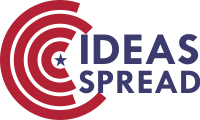Experience Perception, Deepen Cognition
The Innovation of College English Teaching Mode in Independent Colleges
Abstract
As an indispensable part of higher education in China, independent colleges bear the responsibility of talent training in the new era. Optimizing college English teaching environment in independent colleges is important for the healthy growth of college students. To explore new ideas of college English teaching in independent colleges, this paper applies the cognitive teaching model to the entire process of college English teaching, By deepening their cognition and comprehension with the flexibility of the cognitive teaching model, this enhances college students’ experience of English learning.
References
Hu, J. (2019). Exploration of College English Graded Teaching in Independent Colleges: Taking Boda College of Jilin Normal University as an Example. Journal of Chongqing Vocational College of Electronic Engineering, 5, 118-122, in Chinese.
Sun, J. Y. (2019). Study on the hybrid teaching model of "Advanced English" for English majors in independent colleges based on micro courses. Education and Teaching Forum, 44, 199-200, in Chinese.
Wang, J. Y. (2019). Application of metacognitive strategies in English reading teaching in independent colleges. International Public Relations 10, 31-32, in Chinese.
Wei, M., Tao, Y. Y., & Li, M. F. (2019). Investigation and enlightenment on the current situation of college English teaching in independent colleges during the transition period: A case study of 12 independent colleges in shaanxi province. Overseas English, 17, 106-107. In Chinese.
Yang, S. (2019). Application of micro-course in basic English teaching in independent colleges. Research and Practice of Innovation and Entrepreneurship Theory, 14, 59-60. In Chinese.
Zhi, K. N. (2019). Application of interactive teaching mode in English teaching of international classes in independent colleges. Overseas English, 16, 180-181. In Chinese.

This work is licensed under a Creative Commons Attribution 4.0 International License.
Copyright for this article is retained by the author(s), with first publication rights granted to the journal.
This is an open-access article distributed under the terms and conditions of the Creative Commons Attribution license (http://creativecommons.org/licenses/by/4.0/).









1.png)














